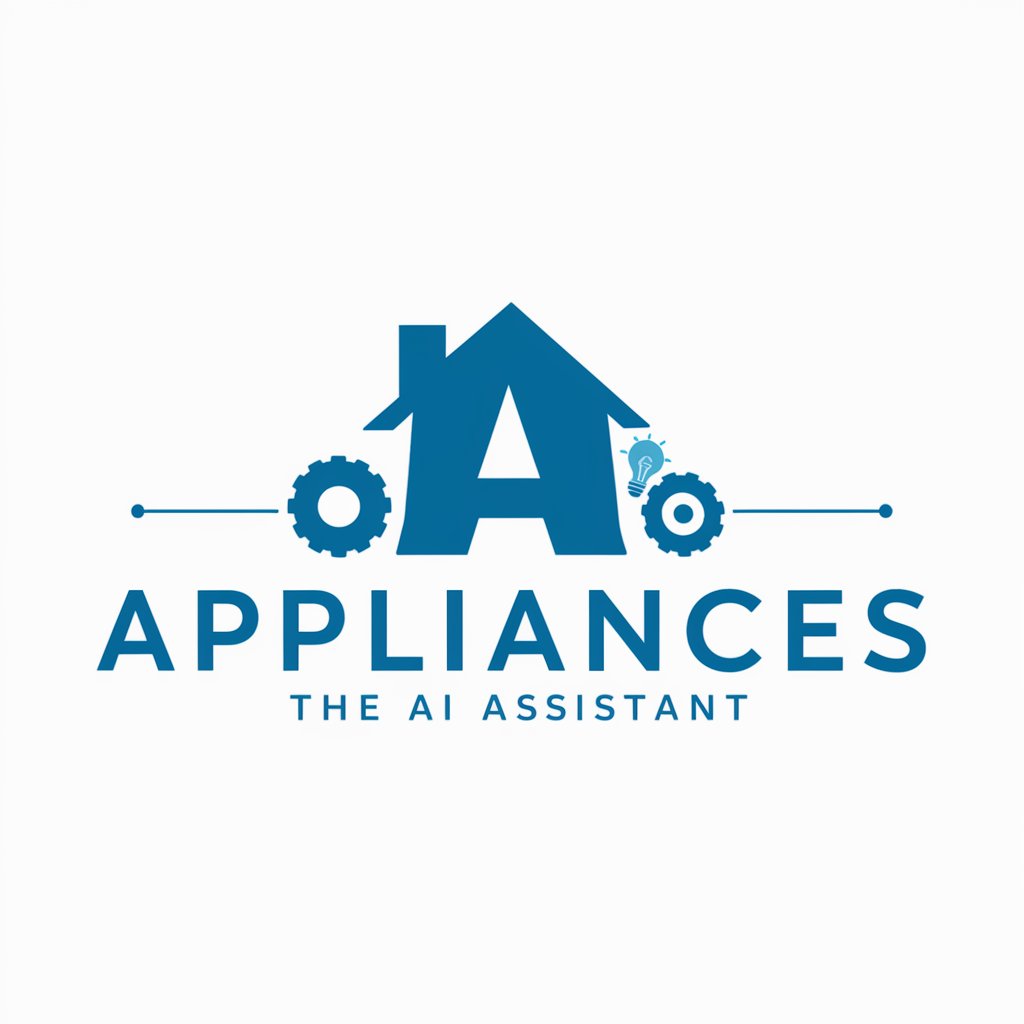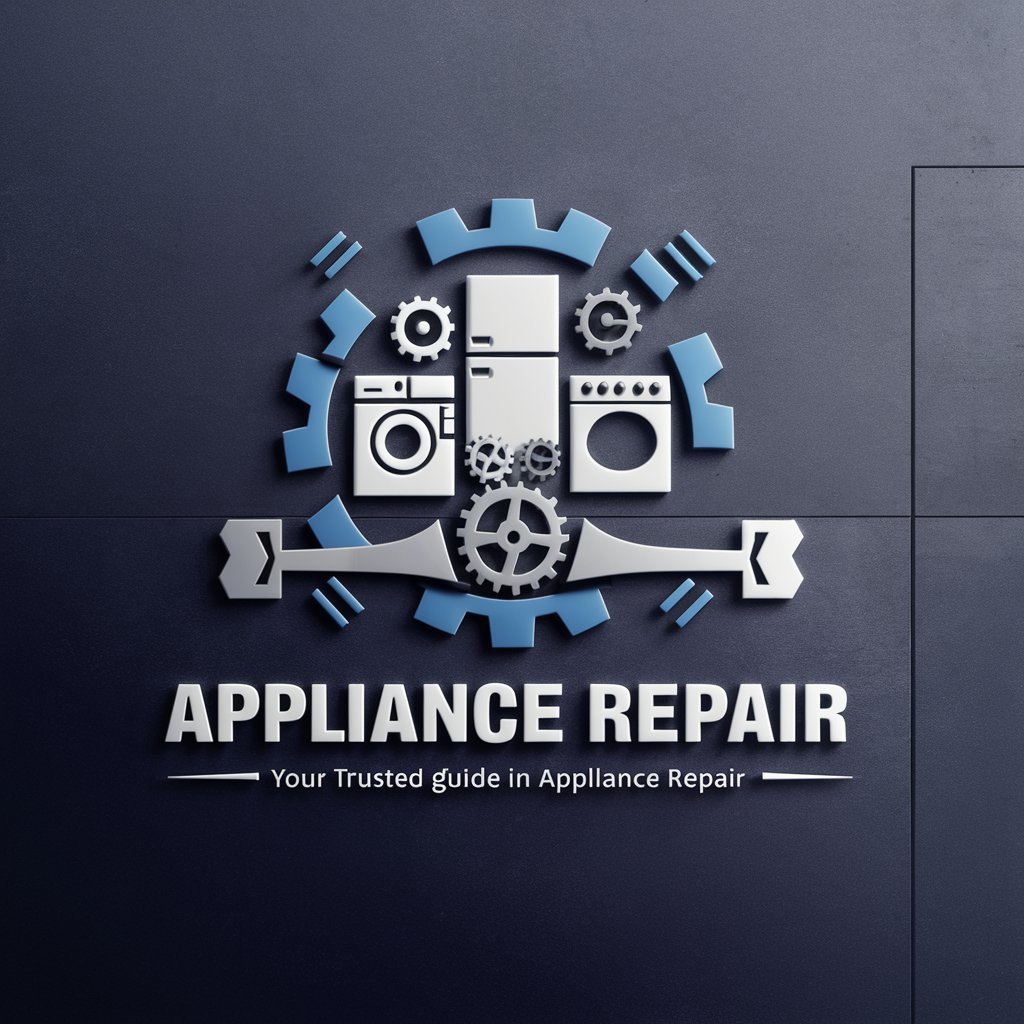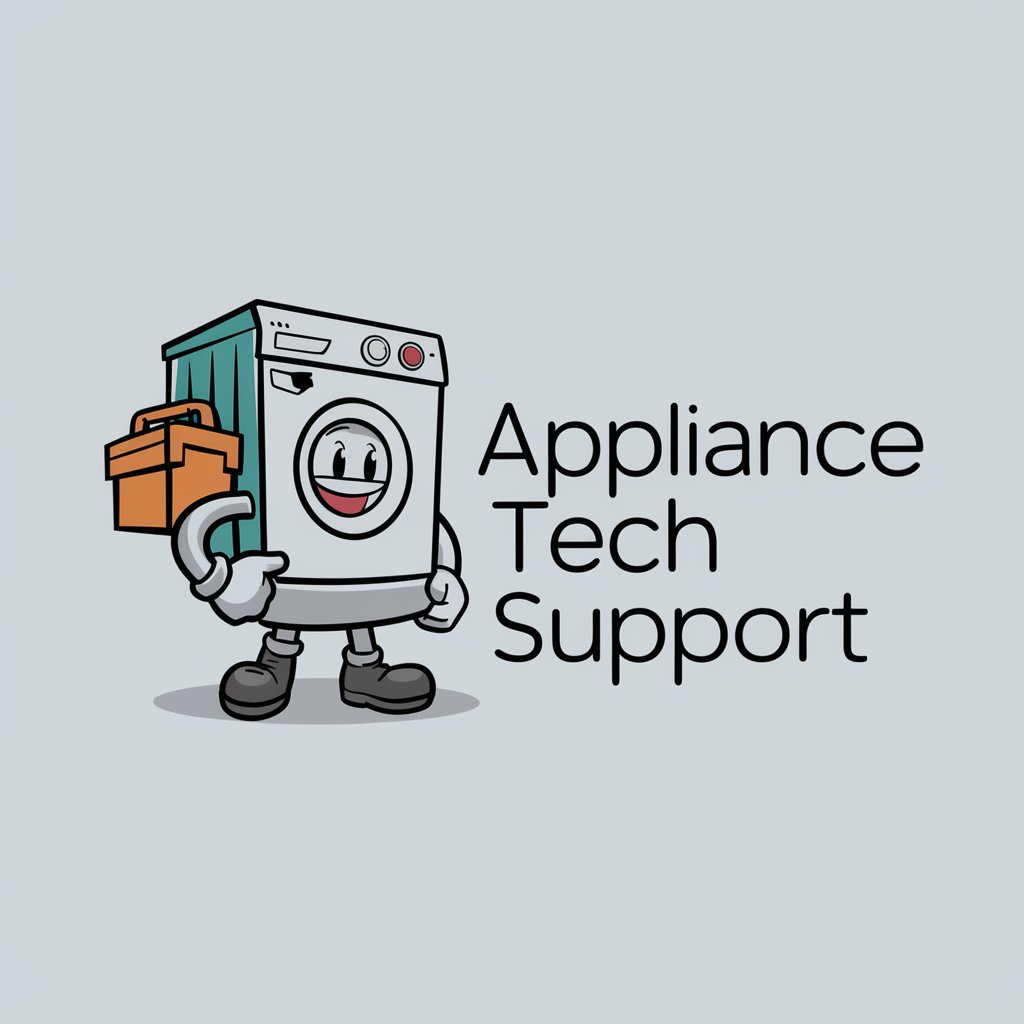
Appliances - Appliance Guidance Tool

Hello! Need appliance advice? I'm here to help!
Empowering smarter home appliance use.
How does a dishwasher work?
What are the benefits of energy-efficient refrigerators?
Tips for maintaining a washing machine?
How to choose the right air conditioner for your home?
Get Embed Code
Understanding Appliances: Functions and Design Purpose
The term 'Appliances' refers to a wide range of household devices designed to perform specific tasks to aid in daily living, enhance convenience, and improve the quality of life. These include everything from small kitchen gadgets like blenders and toasters, to larger household systems such as refrigerators, washing machines, and HVAC (heating, ventilation, and air conditioning) systems. The primary design purpose of these appliances is to automate or simplify tasks that were traditionally labor-intensive, time-consuming, or requiring specialized skills. For example, a dishwasher not only cleans dishes more efficiently than hand washing but also saves water. A smart thermostat learns a household's patterns and adjusts heating and cooling for optimal comfort and energy efficiency. These examples illustrate how appliances are integral to modern living, offering both practical utility and environmental benefits. Powered by ChatGPT-4o。

Core Functions of Household Appliances
Automation of Daily Tasks
Example
Dishwashers, Vacuum Cleaners
Scenario
Dishwashers automate the process of cleaning dishes, requiring minimal human intervention. Vacuum cleaners, especially robotic ones, clean floors without manual effort, allowing users to focus on other activities.
Food Preservation and Preparation
Example
Refrigerators, Microwave Ovens
Scenario
Refrigerators extend the shelf life of food through cooling, while microwave ovens provide a quick and efficient way to heat or cook food, showcasing how appliances support dietary habits and convenience.
Climate Control
Example
Air Conditioners, Heaters, Smart Thermostats
Scenario
Air conditioners and heaters maintain comfortable indoor temperatures. Smart thermostats optimize these temperatures based on user habits and weather, enhancing comfort and energy efficiency.
Laundry and Garment Care
Example
Washing Machines, Dryers, Irons
Scenario
Washing machines and dryers streamline the process of cleaning and drying clothes. Irons further aid in garment care by removing wrinkles, ensuring clothes are presentable.
Who Benefits from Using Appliances?
Busy Professionals
Individuals with demanding careers benefit from appliances that save time and automate household tasks, allowing them to dedicate more time to work and leisure.
Families
Families, especially those with children, benefit from appliances like washing machines and dishwashers that handle large loads, simplifying daily chores and improving home management.
Environmental Enthusiasts
Those concerned with energy consumption and environmental impact benefit from energy-efficient appliances that reduce utility bills and carbon footprint.
Tech-Savvy Users
Individuals interested in smart home technology find value in connected appliances that can be controlled via smartphones, offering convenience and innovative home management solutions.

How to Use Appliances Effectively
1
Start with a no-cost trial at yeschat.ai, allowing access without registration or ChatGPT Plus subscription.
2
Identify the specific appliance or category you need assistance with to narrow down the search and get relevant advice.
3
Explore the functionalities offered, such as tips for energy efficiency, maintenance advice, and usage guidelines.
4
Utilize the provided tips for optimal appliance usage, incorporating energy-saving practices and maintenance routines.
5
Provide feedback or ask further questions for a personalized experience, enhancing your understanding and usage of household appliances.
Try other advanced and practical GPTs
The Nightlife Guru
Unlock the night with AI-powered insights

There's A Hope meaning?
Empowering Your Ideas with AI

There's Something Happening meaning?
Unveiling Insights with AI

Aha Moment
Track, Visualize, Achieve - AI-Powered Goal Setting

War Buddies meaning?
Unlocking the camaraderie of war with AI

Vaya Con Dios meaning?
Enhancing text interaction with AI

Ole Lonesome George The Basset meaning?
Empowering Inquiries with AI

The Hero You Deserve
Craft Your Superhero Saga

lowP Gpt
Inspiring creativity through unpredictability

GptOracle | The USA Immigration Lawyer
Empowering Immigration Decisions with AI

"محامي - Lawyer"
Empowering legal decisions with AI

Avoid Ticket Guide
AI-powered legal guidance for traffic tickets

Frequently Asked Questions about Appliances
What makes an appliance energy efficient?
Energy efficiency in appliances is determined by their ability to use less power to perform the same tasks. Look for ENERGY STAR ratings and models designed with energy-saving technologies.
How can I maintain my kitchen appliances?
Regular cleaning, following the manufacturer's maintenance guidelines, and timely repairs are key. Also, descaling water-using appliances and sharpening blades can prolong their lifespan.
What should I consider when buying a new appliance?
Consider factors such as energy efficiency, size, capacity, features, and how well it fits your needs. Also, review customer feedback and product warranties.
Can smart appliances save money?
Yes, smart appliances can be more energy-efficient and offer features like remote control and monitoring, which can help reduce utility bills by optimizing usage.
How do I dispose of old appliances?
Many regions have specific disposal programs for appliances. Look for recycling programs, charitable organizations that accept working appliances, or municipal disposal services that follow environmental regulations.





